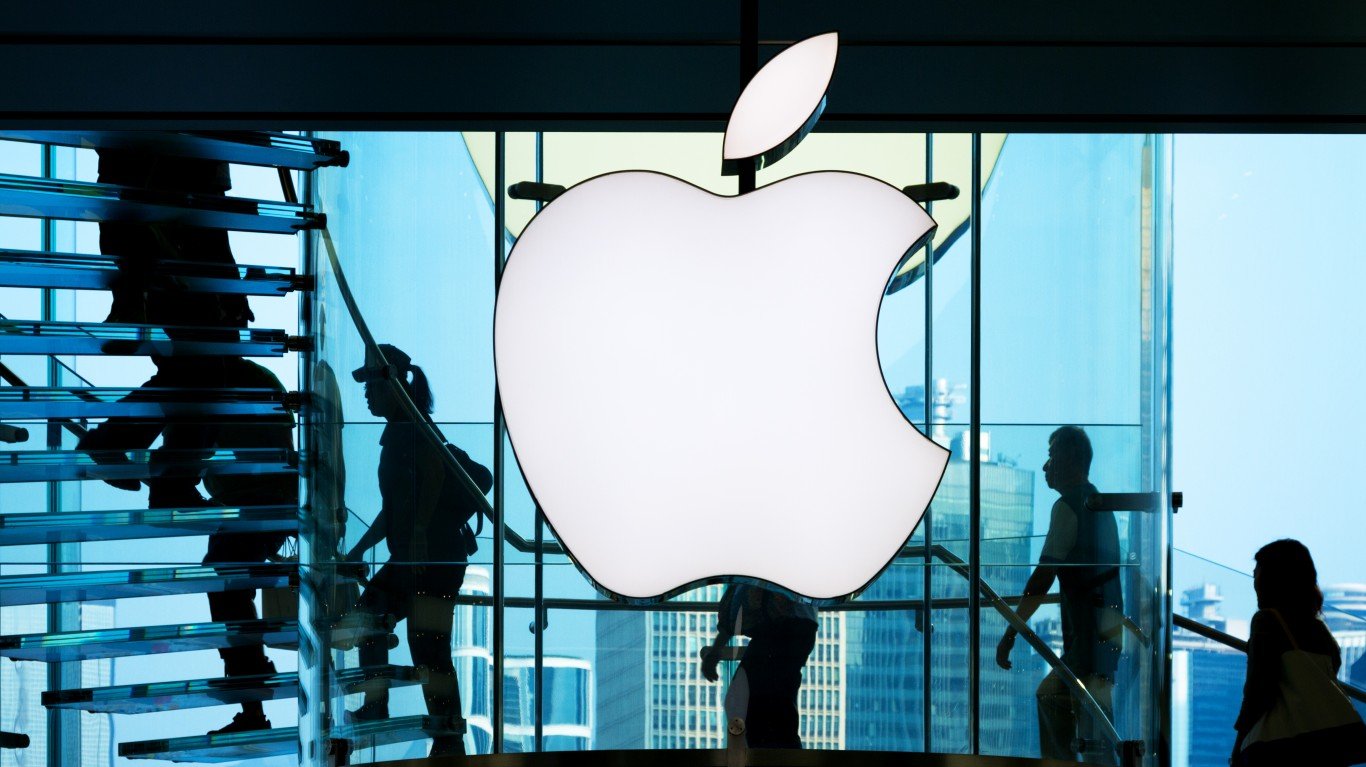

Everyone expected Apple Inc. (NASDAQ: AAPL) to report record quarterly results Wednesday afternoon, and the company did not disappoint. Earnings per share of $1.68 beat the consensus estimate by 19%, and revenue of $111.4 billion was better than the forecast by nearly 8%.
[in-text-ad]
iPhone revenue rose by 17% year over year to a whopping $65.6 billion, while sales of Mac computers rose 21% to $8.7 billion, iPad sales rose 42% and Services revenues jumped 24% to $15.8 billion. Services is now Apple’s second-largest division by revenue.
In a report on global smartphone sales released Wednesday, analysts at research firm IDC estimated that Apple sold 90.1 million iPhones in the December quarter, more than any other vendor, and enough for a worldwide market share of 23.4%. Number two Samsung sold 73.9 million smartphones, a 19.1% share, and third-ranked Xiaomi sold 43.3 million units. Huawei saw unit volumes drop by 42.4%, from 56.2 million units a year ago to 32.2 million.
So why did shares dip by about 1% after Apple’s announcement, and why were they trading down by around 2.4% in Thursdays’ premarket session? Partly that’s due to general nervousness among investors thanks to the startling action in shares of GameStop and AMC, among others.
The larger reason may be Apple’s coming introduction of a privacy feature the company announced at its developer conference last year. On a conference call Wednesday afternoon following Facebook Inc.’s (NASDAQ: FB) earnings results for the quarter, CEO Mark Zuckerberg called Apple one of his company’s “biggest competitors.” What he really meant was that Apple is perhaps a bigger threat to Facebook’s growth than even the U.S. Congress.
Apple’s privacy feature, which will be available to all iPhone owners with devices capable of running iOS 14, allows users to control which apps are allowed to track their activity on the internet. To say that is a threat to Facebook’s business model is an understatement. Zuckerberg didn’t pull any punches: “Apple has every incentive to use its dominant platform position to interfere with how our apps work to favor their own, which they regularly do.”
For Apple, privacy is a “fundamental human right,” according to a statement at its corporate website. In a presentation titled “A Day in the Life of Your Data,” posted Thursday morning, Apple says it is fighting a “large and opaque industry [that] has been amassing increasing amounts of personal data” and generating $227 billion in annual revenue from the sale of that data. The company also touts its own efforts to give users the ability to prevent tracking of their activities.
Investors likely see a war between Apple and Facebook as one with no winner. Facebook’s own quarterly earnings report, like Apple’s, was outstanding, but investors remain wary of pushing the stock price higher.
Looking ahead, CEO Tim Cook said on the company’s conference call that Apple has “new things that we aren’t going to talk about that we think will contribute to the company.” As is his usual practice, he said no more, leaving analysts and investors to speculate what the company has up its sleeve in the coming months.
Some likely “new things” include integrating the company’s new M1 processor into more MacBook models. Another is a technology Apple calls AirTags, a Bluetooth tracker that allows iPhone users to find personal stuff with help from the company’s augmented reality (AR) technology.
2021 is shaping up as an interesting year for the big tech players. Stay tuned.
Thank you for reading! Have some feedback for us?
Contact the 24/7 Wall St. editorial team.
 24/7 Wall St.
24/7 Wall St.


